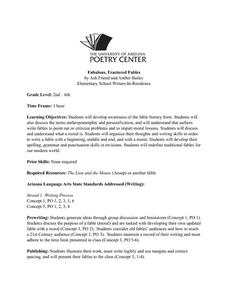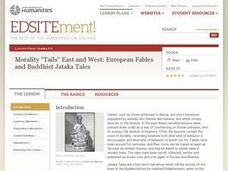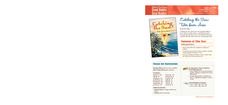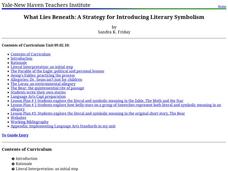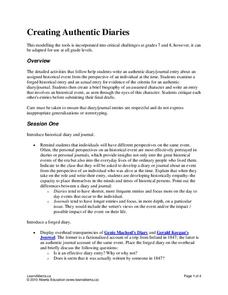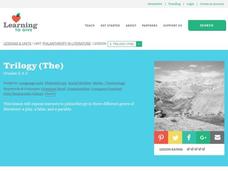Curated OER
Fabulous, Fractured Fables
Elementary schoolers develop an awareness of the literary form known as the fable. They explore how authors write fables to pass along moral lessons. After reading and discussing many famous fables embedded in the plan, learners attempt...
Curated OER
Morality "Tails" East and West: European Fables and Buddhist Jataka Tales
Have your class explore Buddhist Jataka Tales to compare and contrast them to European fables. After defining fables, Jataka tales, and the elements of each, learners identify themes and patterns for both types of narratives and the...
Curated OER
Determining Author's Point of View: The Sneeches
Determine the author's point of view in a text. Young readers read Dr. Seuss' The Sneeches and identify the author's purpose in the story. They identify persuasive techniques in writing, asking and answering questions to better...
Pearson
Catching the Sun: Tales from Asia
Explore the folklore of Asia and the South Pacific with this language arts instructional activity series. Complementing a reading of Catching the Sun: Tales from Asia by Jan M. Mike, this resource supports learners with understanding...
Curated OER
I Hate to Complain but your Cheese Stinks
Students read and discuss the "fractured" fairy tale "The Stinky Cheese Man". They imagine that they are in the fairy tale and write a letter of complaint concerning the Cheese Man and how he stinks up the town.
Curated OER
Fables and Trickster Tales Around the World
Students analyze fables and trickster tales from various cultural traditions. In this fable analysis lesson plan, students identify the elements of fables and trickster stories. Students read Aesop's fables and Ananse spider stories....
Curated OER
Is That a Fact? A Comment on Modern Fables
Students complete literary analysis for modern fables or urban legends. In this modern fables lesson, students listen to an urban legend and discuss it. Students then research urban legends online and write their own urban legend.
Yale University
What Lies Beneath: A Strategy for Introducing Literary Symbolism
“It’s not about what it is, it’s about what it can become.” You’re never too old for Dr. Seuss and using The Sneetches and The Lorax is a great way to introduce readers to allegories, parables, and literary symbolism. The lessons...
Alberta Learning
Creating Authentic Diaries
Napoleon Bonaparte once said, "What is history but a fable agreed upon?" A series of lessons encourages learners to look beyond the basic fable agreed upon related to events in history and consider multiple accounts of the event. The...
Curated OER
Philanthropy in Literature
Students research philanthropy in three genres: a play, a fable, and a parable. Students read an Aesop fable and answer questions in groups. Students complete steps in two worksheets from 'The Good San Franciscan' and 'Someone Should.'...
Bright Hub Education
The Winter of Our Discontent
The resource gives some basic concepts concerning the title of the novel, basic literary elements, student developed assessments, and a philosophical notion concerning honesty in literature. The instructors are shown where they can use...
Other popular searches
- Writing Fables and Folktales
- Writing Fables Middle School
- Writing Fables 4th Grade
- Writing Fables Grade 6
- Writing Fables Mind Map
- Writing Fables Gr 5
- Writing Fables Rubric
- Writing Fables Gr 2
- Writing Fables Animal Farm
- Writing Fables Gr 3
- Aesop's Fables and Writing
- Fables Six Traits Writing


